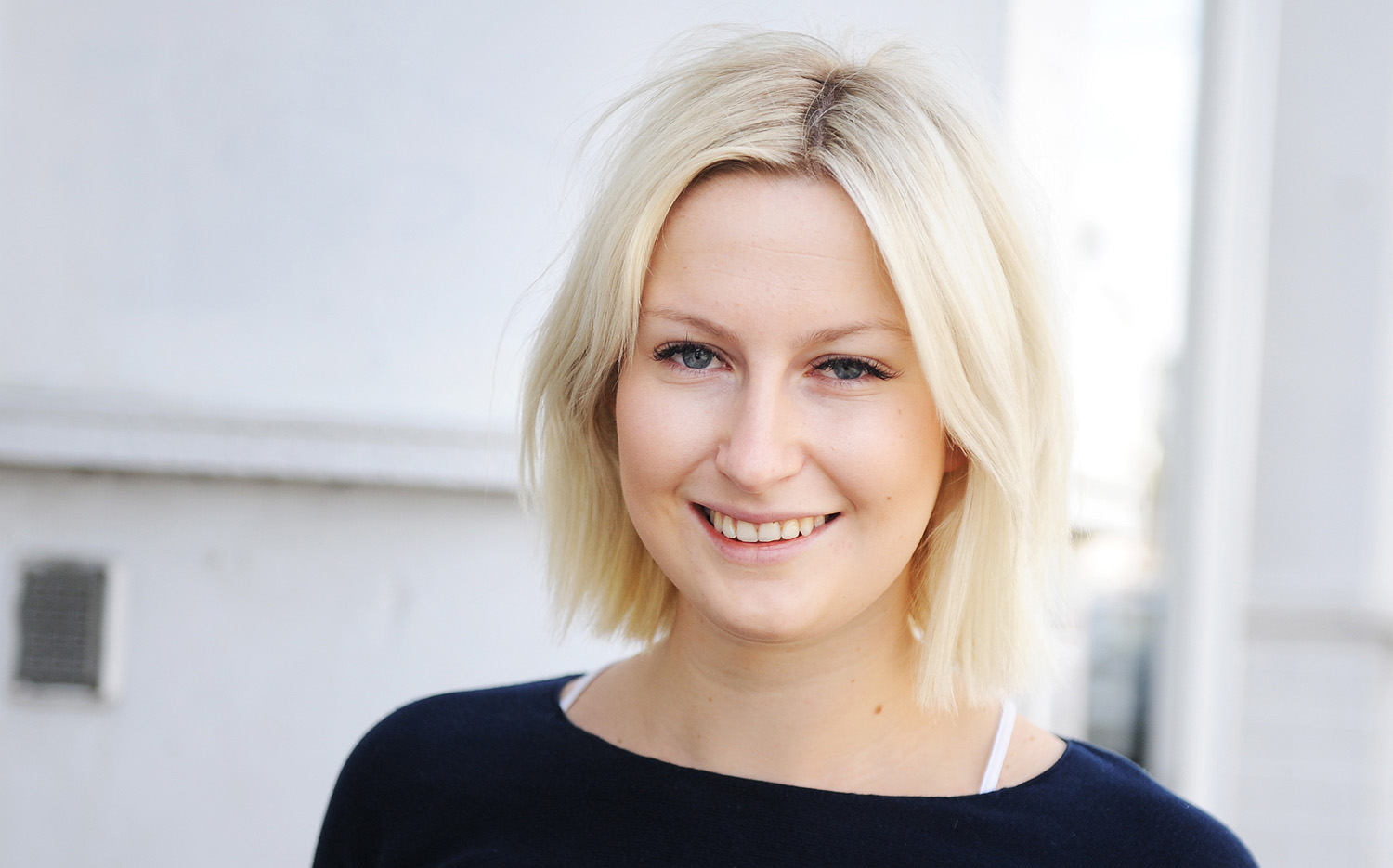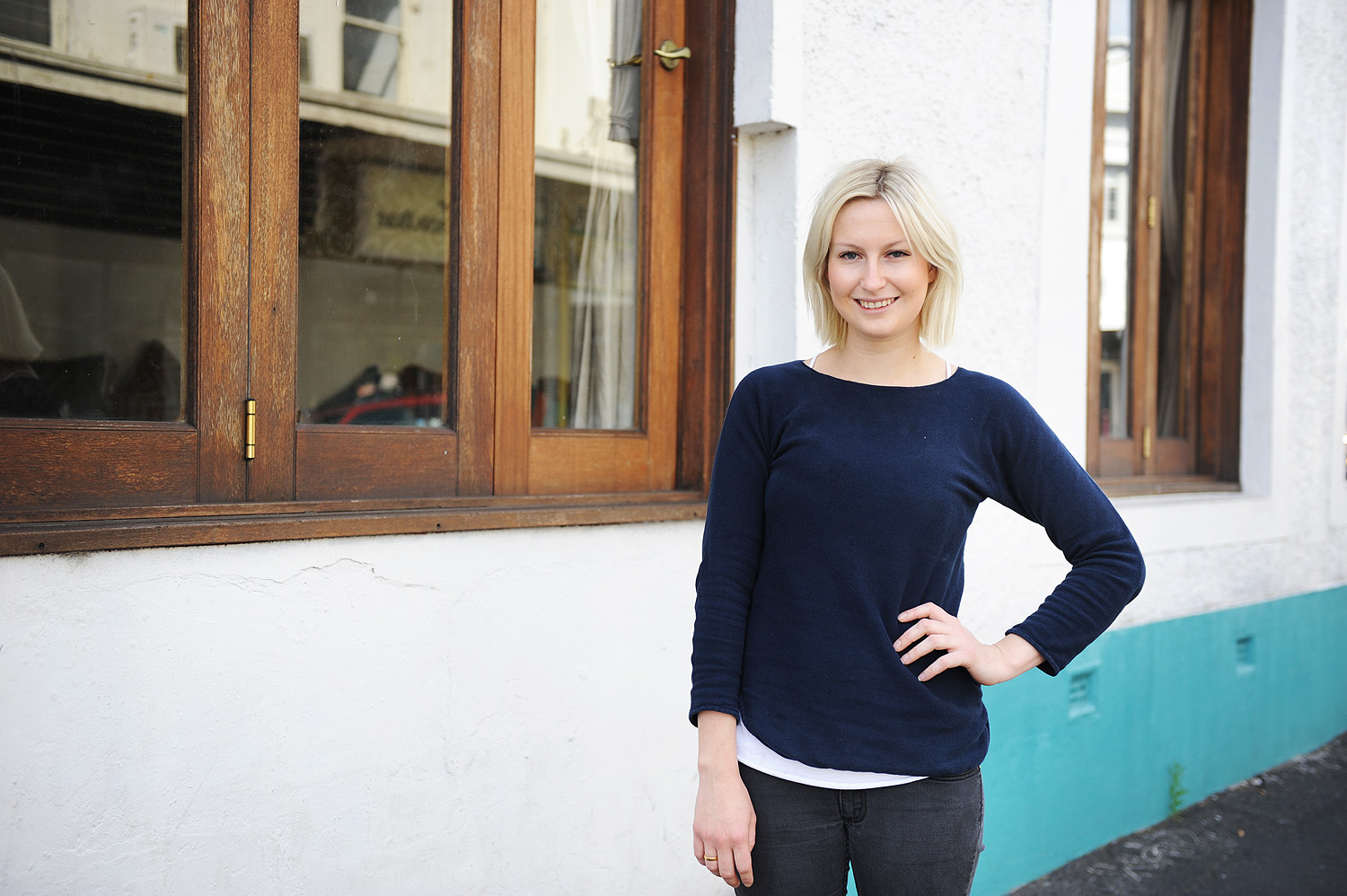
RACHEL SMITH
“If you had told me 5 years ago I’d be a nurse, I would have said “Not a chance”.
I am a paediatric oncology nurse.
I grew up in the UK and moved to Australia in 2009, when I was 16. I did an international Baccalaureate in high school, specifically focusing on biology subjects. I was always interested in sciences and after school I got into a biomedical degree at Deakin, with the intention of going into veterinary medicine.
On graduation, I started a short internship at Southpaws Specialist Veterinary Clinic. I was allowed to shadow in surgeries, did admissions, pre – and postoperative care. As a result, I was offered a job there as a casual vet nurse, which I did for about 6 months. It was tough and long hours, but I loved it.
I wanted to pursue veterinary practice, so I applied for the degree in veterinary medicine. As it turned out, the degrees for vets can be even more competitive than human medicine, and I was really disappointed not to get into the course I wanted.

Around the same time my dad was diagnosed with cancer, so I started spending a lot of time at hospitals.
Before that, I naively thought that nurses didn’t do all that much, aside from changing sheets and giving injections.
In the hospitals, I saw how much time they spent with the patients, the level of duties and responsibilities they had.
Doctors call nurses their eyes and ears, and respect their opinions on treatment, as the nurses are the ones who are with the patients the most time, observing and analysing them. It changed my view on the profession.

This got me interested in nursing, so I talked to a friend who did a nurse-practitioner program. I realized that I wanted to follow this path. Because I already had an undergrad degree, I could do a Master’s in a year and a half.
I did my Master’s in Nursing Practice at Monash and really enjoyed it. My biomed background made it a bit easier to understand the concepts and get through the course.
It got a lot more interesting during placements, when we had a lot of hands-on learning.
I had my first placement in a small private hospital, looking after palliative oncology patients, people at the end of their lives.
Then I was moved to ICU for my second placement, and it was one of those times when you realize “This is what I want to do”. It was controlled chaos: patients being rushed in, with lines coming out everywhere, doctors madly working to save people; all sorts of cases, from motorcycle accidents to gunshot wounds to heart attacks.

ICU is one-on-one nursing, you’re there for 12 hours, monitoring everything your patient is going through. Most of the time you can anticipate what’s coming next, whether it’s a drop in blood pressure or arrhythmia.
I am a bit of a neat freak and I enjoyed that environment, which was very organized, despite also being fast-paced and chaotic.
I graduated last October, and started working at the Royal Children’s Hospital last July, in the oncology department. Now I work with high-risk patients, kids get flown in from Tasmania, New South Wales, Queensland, some from overseas.
These are patients who need high levels of chemotherapy, a lot of pain management.
The children I work with are predominantly under 5, though there are some teenagers as well.
When I started, I was supervised for the first few weeks while doing regular nursing tasks – medications, tests, taking blood, infusions, pain management. In time, I got more autonomy. Now I look after patients in chemotherapy.

Cancer is a broad term. We see a lot of leukaemia and lymphoma, some solid cancers, bone or kidney. The treatments are very different. At the moment chemotherapy is not specific to cancer cells, what it does is kills all of the fast-growing cells in the body, which include the cancer cells.
I think they are trying to come up with better ways to treat it, like get antibodies to target actual cancer cells. But for now, chemo patients get some horrific side effects from the treatments.
It’s not so much the cancer itself that makes them sick; it’s the treatment.
You give them high doses of toxic medication through a central venous access device. Then you wait for them to develop something called mucositis, which is when the mucosal cells in the digestive tract become broken down. It’s horrible for kids, they cannot drink or eat, they are in a lot of pain, which we need to manage.
You have to watch the patients closely after chemo.
Kids will become sick with infection and start having febrile episodes, because all their white blood cells are wiped out and the immune system is down. While we know and anticipate all that’s going to happen, and it’s a controlled environment, you really have to be right on top of it and act fast once the processes start.

I never thought I’d like paediatrics, but now I wouldn’t be anywhere else. Paediatrics is so different from the adult world where you can plan and explain the routine to the patients.
Try that with a 2-year-old who refuses to take the meds.
But you still need to have a schedule and do all these complicated procedures.
So a lot of planning goes into this, and we get a lot of allied support. There is a group called Comfort First, who do play therapy, they help us a lot in keeping up a positive environment. And the parents overall are really helpful.
When you don’t know the child, it’s hard to tell how much pain they are in, hard to localize it. The child might say, “I’ve got the owwies”, and you’ve got to go along with it, and ask, “What does it feel like, where are the owwies, how long have you had these owwies?”
It’s all quite subjective, but it keeps you on your toes. This is the challenge I like.
Sometimes, we have kids from unstable homes; they are looked after by social workers and occasionally we have the Department of Human Services get involved. Patients need a lot of care at home, so it’s hard to see when kids don’t get that, especially as it’s something out of your control – my heart really goes out to those kids.

You have your good days and your bad days. Sometimes you have three patients who get that febrile episode at the same time, so we are all madly working, it’s all hands on deck as we get the situation under control. But everyone in my department works really well together, I’m really happy with my team and the support we give each other.
Then there are the palliative patients, who might still be getting treatment, but it’s more to do with pain management, as we know they won’t survive.
It’s hard when you build a great rapport with them, knowing what’s going to happen.
It can be even harder on the family side – a lot of new patient’s families just don’t cope. A lot of children will go home to die. It’s especially rough when the child understands it.
One of the hardest parts of the job is building a compassionate relationship with the patient and their family, while not forming an emotional attachment. That’s your job, you’re here to do it: but you will burn out if you let it become a part of your personal life. I don’t ever take work home with me.
Of course I’ve had cases that stayed on my mind for a while, but you have to be able to block it out, you can’t let it weigh you down.
From an outside perspective a lot of people think it must be horrible, and it is, but you just have to distance yourself from it.
I’m lucky to have a lot of support from the nurses, the allied staff, and the doctors. I think in most hospitals, there is a certain hierarchy, especially with the doctors. For example, there are residents, that’s the young doctors who aren’t specialized yet. They will talk to you, ask for and respect your opinion. You don’t always get that with the more experienced doctors, but I guess that’s the way it is everywhere.
I am happy that I found a job that I like getting up in the morning for.
Nursing is not something you do for the money. Given what a nurse deals with day to day, the level of responsibility, it’s probably not really adequate. But most of us are in it for the difference we make to people’s lives, for the satisfaction of helping patients and families.
I’d like to keep going with oncology; I was always interested in cancer treatment, with my biomed studies and my father’s illness. But also next year, I’d like to do the emergency care course that will allow me to work in ICU, which I also really enjoyed for the challenge it presents. Ideally, I’d want to split my time between ICU and oncology.
Longer term, I’d like to join PIPER – perinatal, infant and paediatric emergency retrieval service. It uses helicopters and specialized ambulances that are set up like ICUs inside, to transport very sick children to the hospitals. I suppose I like the high intensity, high acuity stuff.
I know I want to keep studying further.
My biggest interest areas are neurology and trauma, but there are so many fields you can go into as a nurse – there’s still many areas I might find out about.
I’ve always been a high achiever; I did a lot of study. People have said to me, “Why didn’t you do medicine, why are you are just a nurse”. And yeah, at first I was hard on myself, thinking that I could have done better, become a doctor.
It bothers me that there isn’t a lot of understanding about the role of a nurse.
Nurses don’t get enough credit, money and recognition for what they do. There is this perception in the public, “Oh, you’re just a nurse”. But I’ve met nurses who tell the doctors what to do – that’s how much the doctors rely on them.
You know, it’s so much more than the Florence Nightingale times when they just bathed the patients and held their hands. Of course, you do all that as well – and you need to do it well, with real compassion. You need to be a real people person, and not to take yourself too seriously. But it’s the level of skills, and knowledge that you have to have is what most people don’t appreciate.
The amount of education that we have to undertake is often surprising to people.
A degree is a minimum, while so many nurses do post-graduate studies in order to specialize, sometimes more than one. In addition to that, every year you need to have 20 hours of continuous education, you have to keep studying because treatments and procedures change.
If you had told me 5 years ago I’d be a nurse, I would have said “Not a chance”. But I really love it now. I don’t do what a doctor does, but we’re on the same team; I just happen to be more on the patient side of it, which I found I enjoy more!
I am in huge admiration for what you do xx
LikeLike